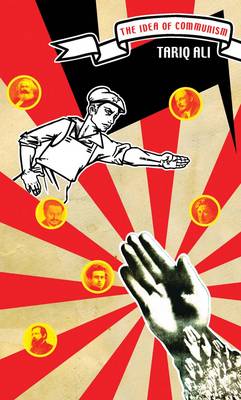Marx and Engels had no idea what they were setting loose in 1848 when they wrote The Communist Manifesto — and they would be the first to admit it. That’s the sense you get reading Tariq Ali’s The Idea of Communism a short book in the “What Was Communism” series. It is no longer 1991. The Soviet Union is gone. Rather than a communist utopia China resembles aspects of Dickens’ England … on methamphetamine. A few anomalies like Cuba and Korea remain, but the safe money is that they will not remain thus. The problem is capitalism, with the field all to itself, as Ali tells us, “Appears more like a nervous disease these days than a triumphal, over confident system.” It is a stark reminder that the whole notion of communism came about because of how awful capitalism was.
Ali is at his most helpful in discussing Marx and Engels pathbreaking work. Every phrase of The Communist Manifesto still merits attention. Think about what Marx says, “What earlier century had even a presentiment that such productive forces slumbered in the lap of social labor.” Now think about just in time inventory, the internet and nanotechnology. One can almost hear Marx pondering such developments. Ali’s point that Marx and Engels, “Would have been horrified by the suggestion their writings might one day be elevated to the status of religion,” is well made.
Where the book stumbles is in trying to easily sum up major pieces of history, i.e. Lenin-Stalin-Mao. Here despite keen insights — Ali skates too close to the surface. Of course Stalin ruled over a peculiar and brutal version of socialism. But Stalin can’t be ripped out of context. His heyday was that brief period between the two world wars. A war in which the Soviet Union bore the brunt of things. Historians are still trying to sort it all out.
Likewise China. As Alain Badiou, said in his book Century — talking about the Cultural Revolution — “This political hurricane is so novel but at the same time so obscure that many of the lessons it no doubt harbors for the future of the politics of emancipation have yet to be drawn.” I suspect people will be talking about those two experiments — along with the legacy of Marx and Engels — for a long time to come. Exactly because there is still this mighty problem. Capitalism. It’s not just that it is unable to meet the needs of all humanity, its very workings are the cause for the mass of deprivation and misery in the first place. One of the more moving passages in his book is where he quotes the Italian philosopher Lucio Magri. Magri reminds Ali of the Brecht poem “Ulm 1592.” It tells of the tailor who claimed he could fly. His effort ending tragically:
Said the People to the Bishop:
The Tailor is quite dead,
He was a stupid head.
His wings are rumpled
And he lies all crumpled
On the hard church square.
The bells ring out in praise
That man is not a bird
It was a wicked, foolish lie,
Mankind will never fly,
Said the Bishop to the People.
As Magri — and by extension Ali — note, “A few centuries later men did indeed learn to fly.”–Aaron Leonard




